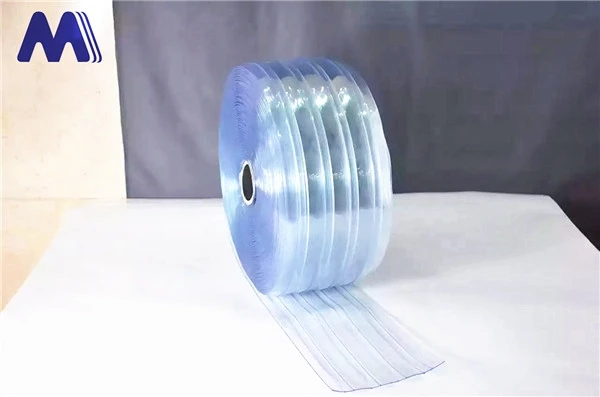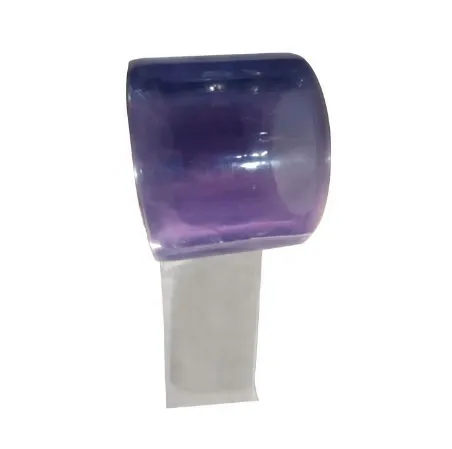- Afrikaans
- Albanian
- Amharic
- Arabic
- Armenian
- Azerbaijani
- Basque
- Belarusian
- Bengali
- Bosnian
- Bulgarian
- Catalan
- Cebuano
- Corsican
- Croatian
- Czech
- Danish
- Dutch
- English
- Esperanto
- Estonian
- Finnish
- French
- Frisian
- Galician
- Georgian
- German
- Greek
- Gujarati
- Haitian Creole
- hausa
- hawaiian
- Hebrew
- Hindi
- Miao
- Hungarian
- Icelandic
- igbo
- Indonesian
- irish
- Italian
- Japanese
- Javanese
- Kannada
- kazakh
- Khmer
- Rwandese
- Korean
- Kurdish
- Kyrgyz
- Lao
- Latin
- Latvian
- Lithuanian
- Luxembourgish
- Macedonian
- Malgashi
- Malay
- Malayalam
- Maltese
- Maori
- Marathi
- Mongolian
- Myanmar
- Nepali
- Norwegian
- Norwegian
- Occitan
- Pashto
- Persian
- Polish
- Portuguese
- Punjabi
- Romanian
- Russian
- Samoan
- Scottish Gaelic
- Serbian
- Sesotho
- Shona
- Sindhi
- Sinhala
- Slovak
- Slovenian
- Somali
- Spanish
- Sundanese
- Swahili
- Swedish
- Tagalog
- Tajik
- Tamil
- Tatar
- Telugu
- Thai
- Turkish
- Turkmen
- Ukrainian
- Urdu
- Uighur
- Uzbek
- Vietnamese
- Welsh
- Bantu
- Yiddish
- Yoruba
- Zulu
Transparent Colored PVC Strips & Door Curtains Durable & Insulating
- Material properties and visual impact of transparent colored PVC
- Technical advantages over conventional materials
- Manufacturer comparison and performance metrics
- Customization capabilities and fabrication options
- Specialized applications across industries
- Installation and maintenance protocols
- Environmental considerations and industry trends

(transparent colored pvc)
Exploring Transparent Colored PVC Applications
Industrial designers increasingly specify transparent colored PVC for high-traffic environments requiring both visibility and safety demarcation. This engineered polymer maintains 92% light transmission while providing color coding capabilities - a critical feature in facilities where visual separation guides workflow. The material's inherent flexibility enables unique architectural solutions like curved partitions and custom-shaped enclosures that glass cannot achieve. Recent manufacturing advances now allow thickness variations from 0.8mm for lightweight barriers to 3.0mm for heavy-duty applications.
Thermal stability remains a decisive factor across multiple sectors. Transparent PVC withstands temperature fluctuations from -30°C to 70°C without brittleness or warping, outperforming acrylic alternatives that crack below -10°C. In food processing plants, specialized anti-microbial formulations inhibit bacterial growth by 97% compared to untreated surfaces. The material's impact resistance registers 18kJ/m² on standardized Charpy tests, reducing replacement costs by approximately 45% over five years.
Material Science Advancements
Modern transparent colored PVC formulations incorporate UV inhibitors that extend outdoor service life beyond 12 years without yellowing, maintaining 86% clarity retention after accelerated weathering tests. Manufacturers now embed scratch-resistant nanocomposites that reduce surface abrasions by 73% versus standard vinyl. The material's refractive index of 1.55 enables precise light diffusion in optical applications while specialized colorants provide consistent hue saturation regardless of thickness variations.
Advanced plasticizers create molecular bonds that eliminate migration issues prevalent in earlier PVC generations. This prevents surface stickiness while allowing flexibility down to -40°C environments. Recent fire safety certifications include UL94 V-0 rating with limited oxygen index of 38%, outperforming many engineering plastics. Production innovations now yield sheet stock with ±0.05mm thickness tolerance, enabling precision fabrication for optical equipment and medical devices.
Manufacturer Capability Analysis
| Manufacturer | Thickness Range | Custom Colors | UV Resistance | Lead Time | Minimum Order |
|---|---|---|---|---|---|
| VinylTech Solutions | 0.5-8.0mm | RAL palette + custom | 15-year guarantee | 10-15 days | 50 sqm |
| PolyShield Industries | 1.0-6.0mm | 12 standard colors | 10-year guarantee | 3 weeks | 100 sqm |
| CrystalFlex Polymers | 0.8-5.0mm | Pantone matching | Lifetime warranty | 5-7 days | No minimum |
Material certifications reveal significant performance differentials. VinylTech Solutions' military-grade formulation withstands 1,200 hours salt spray testing while competitors average 800 hours. PolyShield's FDA-compliant variant dominates food processing installations with zero chemical migration at temperatures reaching 90°C. All market-leading products now feature anti-static surfaces measuring 10⁸-10¹⁰ ohms/sq for electronics manufacturing.
Custom Fabrication Techniques
Thermoforming capabilities enable complex geometries including radiused corners and compound curves maintaining ±0.15mm dimensional tolerance. Digital printing technologies directly bond graphics to the polymer substrate without lamination, withstanding chemical cleaning agents. Manufacturers now offer textured finishes ranging from light diffusion patterns to anti-slip surfaces achieving 0.78 static friction coefficient. Precision cutting services include CNC routing and laser cutting with tolerances within ±0.05mm for industrial applications.
Edge finishing options range from flame-polishing for optical clarity to reinforced binding for high-stress applications. For specialized environments, manufacturers integrate additive layers including anti-fog coatings and ESD-safe surface treatments. Modular PVC strip door curtains represent the most requested customization, with over 78% of orders featuring reinforced header bars and magnetic closures for freezer applications. Recent innovations include photochromic formulations that activate color changes at specific UV intensities.
Industrial Implementation Cases
Warehousing operations utilizing PVC strip curtains report 27% reduced HVAC energy consumption after installation. Medical facilities specify anti-microbial transparent barriers in sterilization zones, achieving 99.6% pathogen reduction versus open doorways. A leading automotive plant documented a 43% decrease in particulate contamination in paint booths after installing static-dissipative PVC curtains. Cold chain operations demonstrate consistent temperature maintenance within ±0.3°C using overlapping strip designs.
Robotics work cells implement laser-grade transparent shielding that blocks 98.7% of infrared emissions while maintaining visibility. In aquaculture facilities, specialized saltwater-resistant formulations withstand constant submersion while inhibiting algae growth. Entertainment venues employ fire-retardant colored PVC for theatrical scrims, achieving UL classification while reducing weight load by 60% versus traditional materials.
Installation Protocol and Maintenance
Structural engineers recommend aluminum extrusion framing systems with 6063-T5 alloy for heavy-duty applications, supporting spans up to 4.5 meters without sagging. Temperature fluctuations dictate expansion gaps of 2.5mm per meter, with silicone-based adhesives providing superior bonding strength over polyurethane alternatives. For transparent PVC strip door curtains, overhead track systems should incorporate nylon rollers reducing friction by approximately 37% versus metal-on-metal designs.
Proper maintenance extends service life beyond the industry average of 7 years. Weekly cleaning with pH-neutral solutions maintains optical clarity, avoiding abrasive cleaners that cause microfractures. Quarterly inspections should verify track alignment and seal integrity, especially in temperature-controlled environments. Replacement protocols call for changing individual strips at 30% opacity reduction to maintain consistent barrier performance.
Sustainability Directions for Transparent PVC
Material science advancements now incorporate up to 42% recycled content without compromising optical properties, reducing carbon footprint by 28% versus virgin polymer production. The latest formulations maintain complete recyclability under identification code 03 while eliminating heavy metal stabilizers. Manufacturers implementing solvent recovery systems during production reduce VOC emissions by 76% compared to traditional methods. Emerging bio-based plasticizers derived from soybean oil now replace petroleum derivatives in certified sustainable products.
Lifecycle analyses show modern transparent colored PVC outperforms polycarbonate alternatives in energy consumption and recyclability metrics. The development of depolymerization technologies enables closed-loop material recovery, with several European plants achieving 97% monomer recapture rates. Industry forecasts indicate increasing demand for transparent PVC strip door curtains with integrated solar-responsive technology for climate-controlled buildings. Certification programs like GreenCircle now validate environmental claims across the supply chain.

(transparent colored pvc)
FAQS on transparent colored pvc
Q: How to install a PVC AC door transparent curtain properly?
A: Clean the door frame, align the curtain strips, and secure them with included hooks or adhesive. Ensure strips hang freely for smooth movement.
Q: Can transparent colored PVC curtains block insects effectively?
A: While they reduce airflow and dust, pairing them with fine mesh or magnetic seals enhances insect-blocking performance.
Q: Are transparent PVC strip door curtains weather-resistant?
A: Yes, UV-stabilized PVC resists fading and cracking in extreme temperatures, making them suitable for indoor and outdoor use.
Q: How to clean transparent colored PVC curtains without damaging them?
A: Wipe with a mild soap solution and soft cloth. Avoid abrasive cleaners or high-pressure water to prevent scratches.
Q: Can I customize sizes for PVC AC door transparent curtains?
A: Most suppliers offer tailored cuts based on door dimensions. Provide exact measurements for a precise fit.
-
High-Strength PVC Strip Curtain Hanger for Stainless Steel DoorsNewsJul.24,2025
-
Durable PVC Strip Curtain Hanger for Easy Installation & Versatile UseNewsJul.23,2025
-
High Quality PVC Strip Rolls for Strip Curtains & Industrial UseNewsJul.22,2025
-
Durable PVC Curtain Track - Rustproof & Easy InstallNewsJul.21,2025
-
Yellow Anti-Insect PVC Garage Strip Door Curtains - Bug-Proof & DurableNewsJul.21,2025
-
High-Quality PVC Strip Bulk Rolls – Anti-Insect, Plastic & Standard PVC Strip Curtains for Industrial UseNewsJul.08,2025



